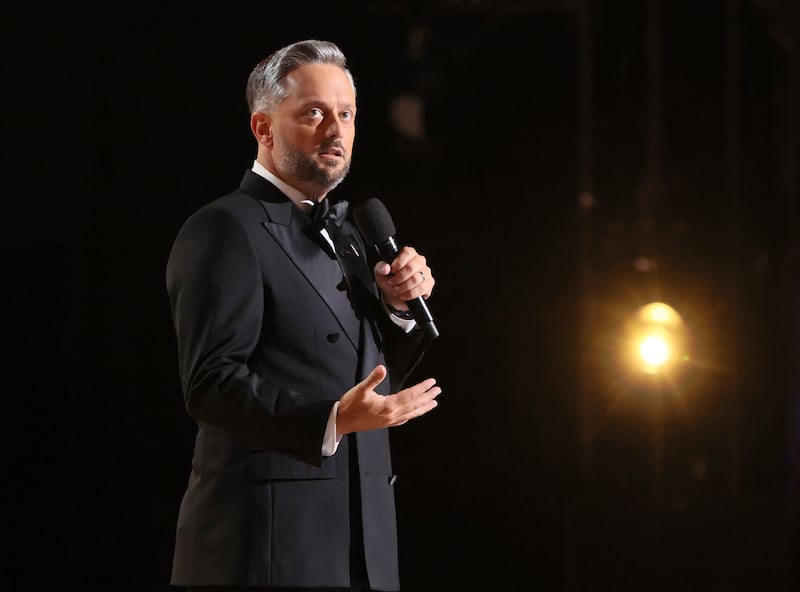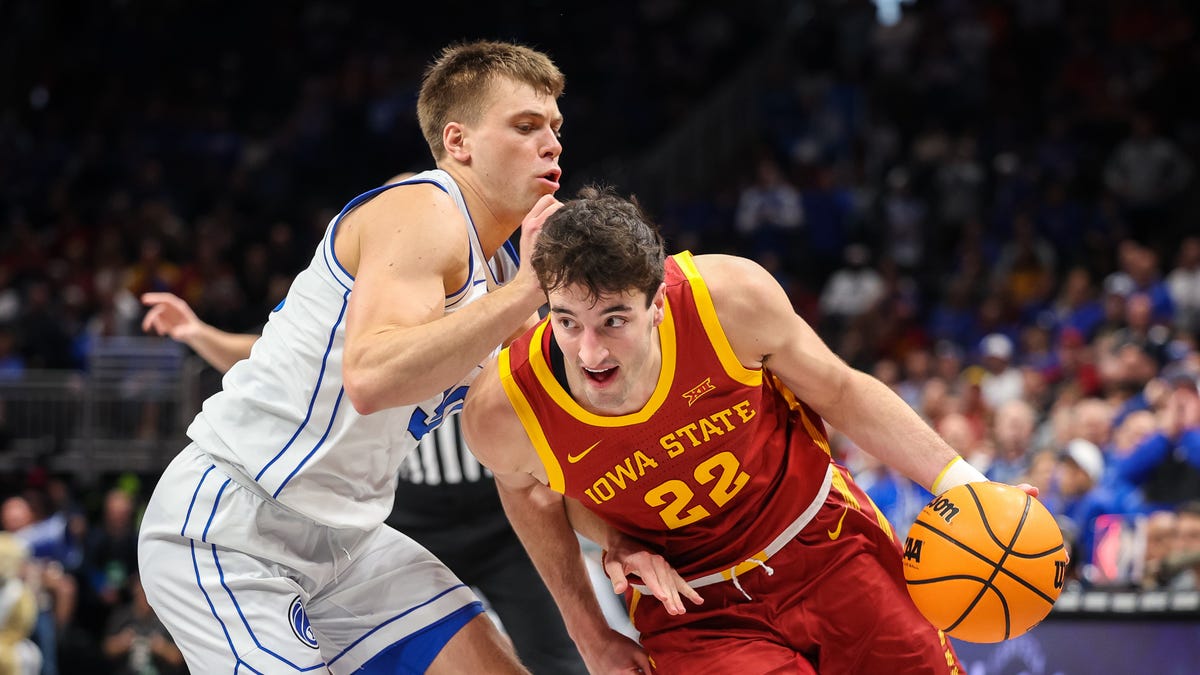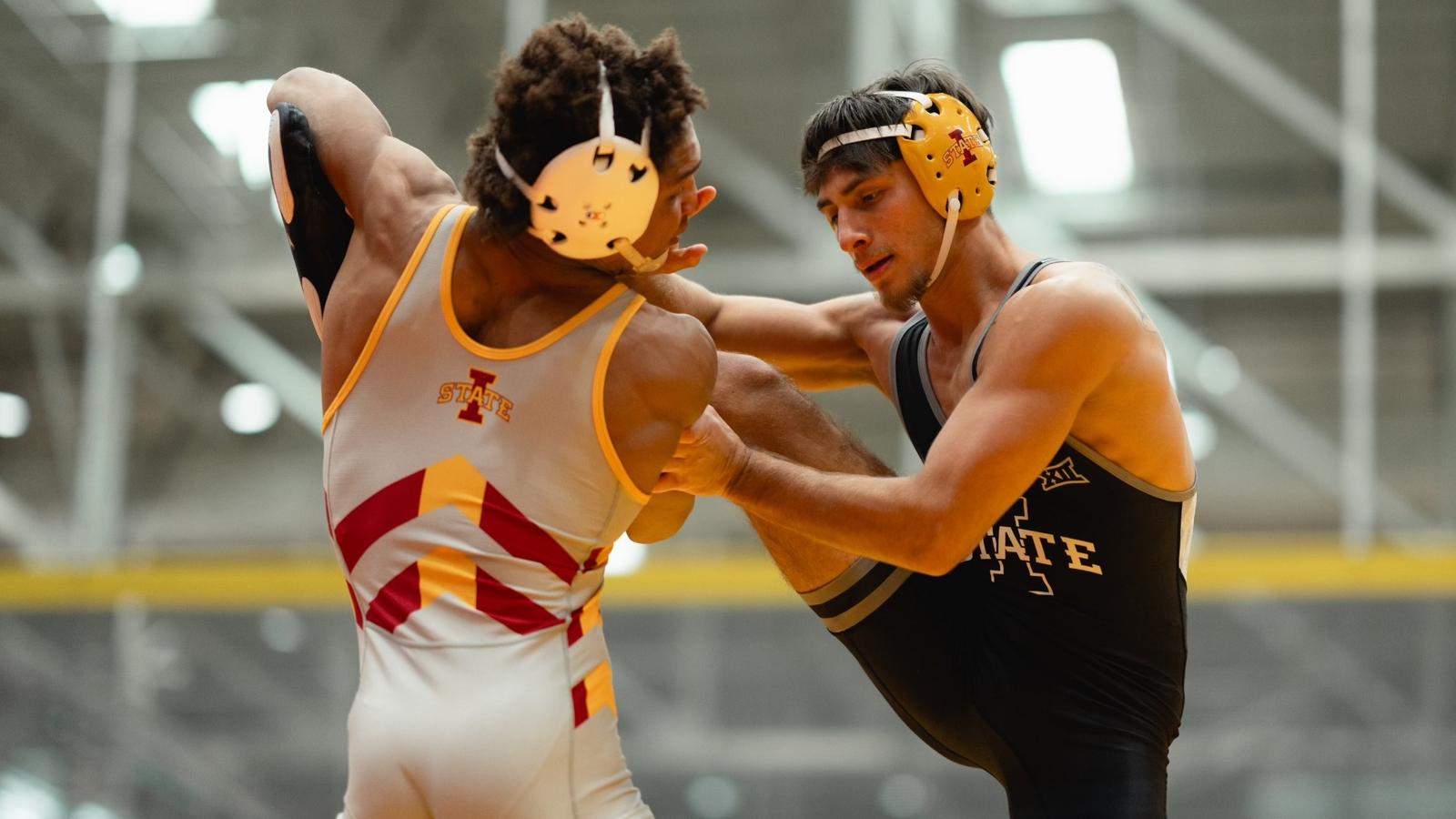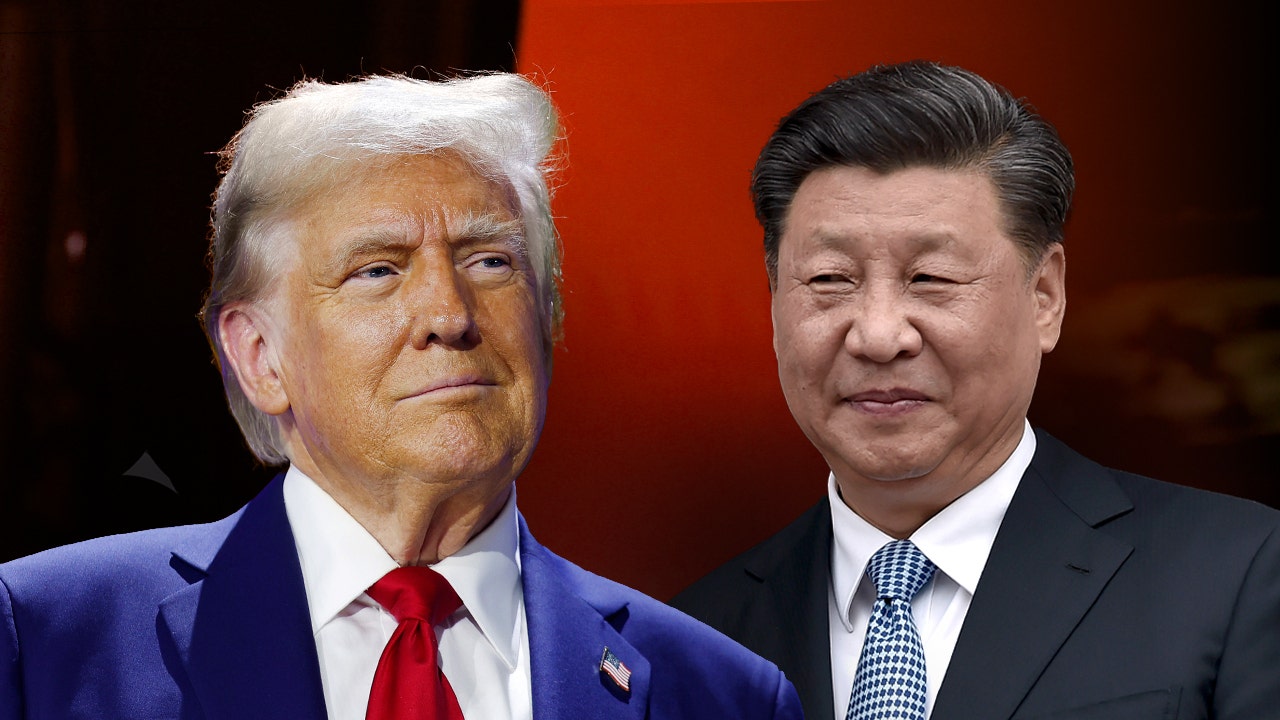Alexandra covers the 2024 U.S. presidential race, with a focus on Republicans, donors and AI. Previously, she spent four years in Venezuela reporting on the humanitarian crisis and investigating corruption. She has also worked in India, Chile and Argentina. Alexandra was Reuters’ Reporter of the Year and has won an Overseas Press Club award.
Contact: +4156053672
Iowa
Ron DeSantis and his backers paid $95,000 to an Iowa religious leader’s group
/cloudfront-us-east-2.images.arcpublishing.com/reuters/YVXZML2QRBKWTPBPXMGHZ4PN2A.jpg)
Aug 12 (Reuters) – As Florida Governor Ron DeSantis scrambles to shore up his struggling run for the Republican presidential nomination, he has spent far more than any rival on courting an influential Christian conservative leader and his following in the key early voting state of Iowa.
Trailing far behind former President Donald Trump in national polls and beset by turmoil in his campaign, DeSantis and his advisers are spending heavily in Iowa in hopes of stalling Trump’s momentum by beating him in the state’s caucuses on Jan. 15, where Republicans begin to choose their next presidential nominee. The state’s influential evangelical voting base is crucial to that strategy.
The DeSantis campaign, a super PAC linked to him and a nonprofit group supporting him together paid $95,000 in recent months to the Family Leader Foundation, an Iowa-based nonprofit led by evangelical leader Bob Vander Plaats, according to campaign finance reports and a document prepared by an Iowa state lawmaker who was helping the Vander Plaats organization raise money for a July 14 presidential candidate forum.
The document and the amount spent by DeSantis and his allies are previously unreported.
For that money, DeSantis and supporting groups got three pages of advertisements in a booklet distributed at the July forum attended by 2,000 Christian conservatives, and tickets to the summit, lunch and an after-dinner event.
But the real value may be more in building a relationship with Vander Plaats, whose endorsement is coveted in the early-voting state, said three campaign finance experts and an academic who studies Iowa campaign spending.
Vander Plaats and his group are leaders in the state’s Christian conservative movement, which has enormous political influence in Iowa. Roughly two-thirds of the state’s Republican caucus-goers in 2016 identified as evangelical, according to pollsters Edison Media Research.
“It’s a lot more money” than you typically see allocated in Iowa, said Steffen Schmidt, an emeritus political science professor at Iowa State University who studies political spending in the state. “It is a large amount for a very limited exposure in a booklet and for a single event,” he said.
In emailed comments to Reuters, Vander Plaats said the charges were “not even close to exorbitant” for the chance to be promoted before an audience of nearly 2,000 “engaged grassroots activists” at a forum that received extensive national political coverage.
“My only regret is that we probably should have charged more,” he said.
A spokesperson for DeSantis, Andrew Romeo, said the campaign was “proud to sponsor an ad with one of the largest and most effective social conservative groups in the state of Iowa.”
IOWA ‘KINGMAKER’
Vander Plaats, 60, has deep influence in the conservative and religious midwestern state. The last three Republican presidential candidates he endorsed – former Arkansas Governor Mike Huckabee in the 2008 election, former Senator Rick Santorum in 2012 and Senator Ted Cruz in 2016 – won the Iowa caucus but did not go on to win the Republican nomination.
In 2010, the year he took charge of the Family Leader group, he led a campaign that unseated three Iowa Supreme Court justices who had voted to overturn the state’s gay marriage ban.
He has said publicly that he could endorse someone near the end of the year besides Trump, who he has publicly criticized.
Vander Plaats said there was no link between money and his endorsement. “My endorsement has never been and never will be for sale,” Vander Plaats said. “My only interest is in bold, courageous, principled leadership for this country.”
But the cost to appear in the Vander Plaats’ group booklet in July was substantially above the prices of similar events.
Another religious advocacy organization, the Iowa Faith & Freedom Coalition, also sponsors a forum for presidential candidates each cycle, scheduled this year for Sept. 16 in Des Moines. That event charges attendees $75 per ticket. Candidates can buy sponsorship packages ranging from $500 to $5,000, said the group’s president, Steve Scheffler.
At the higher end, Scheffler said, candidates get more seats, a mention in the program as a sponsor and a table to hand out literature. He said the group covers most of the cost from donors, not from candidates. Scheffler said he does not endorse anyone.
Vander Plaats has long touted the power of his endorsement. In a 2015 email sent to a conservative group and reviewed by Reuters, he took credit for Santorum winning in Iowa in 2012. “We endorsed Rick Santorum and he stormed to a caucus victory due to our base of supporters,” Vander Plaats wrote.
“Vander Plaats clearly understands his political power, his kingmaker status in Iowa, and how thirsty candidates are for his endorsement,” said Paul S. Ryan, a lawyer who worked previously at two nonpartisan campaign finance watchdogs, Common Cause and the Campaign Legal Center.
A spokesperson for the pro-DeSantis super PAC Never Back Down, Jess Szymanski, said they had “proudly sponsored” the summit, “like every other participating political organization.”
Neither the DeSantis campaign nor Never Back Down answered detailed questions from Reuters, including whether the payments were meant to influence an endorsement decision.
PRICEY PACKAGES
The states in the Republican nominating calendar that vote after Iowa, including New Hampshire and Nevada, look more unfavorable to DeSantis, putting pressure on his team to deliver an upset win in Iowa that would revive their flagging campaign.
The fundraising document, reviewed by Reuters, lists contacts at Republican presidential campaigns, super PACs and other groups supporting the candidates, and details how much each was willing to spend ahead of the mid-July Family Leader forum, among the largest gatherings of social conservatives in Iowa before the caucuses. Six Republican presidential candidates spoke at the event.
A note at the top of the document says it was created by a Republican state representative, Jon Dunwell, who was helping raise money for Vander Plaats’ group. Dunwell referred a request for comment to Vander Plaats, who said Dunwell had been paid as an “independent contractor” since June.
According to the Vander Plaats’ group fundraising document, the DeSantis campaign paid $25,000 to the organization for its ad in a commemorative booklet distributed at the event and an invitation to a special after-event dinner with former Fox News host Tucker Carlson.
A political nonprofit backing DeSantis, And to the Republic, agreed to buy a table at the after-event dinner for $20,000, the document said. Representatives of the group did not return requests for comment.
Never Back Down paid for a two-page advertisement and dinner tickets for $50,000, according to the document and the group’s filings with the Federal Election Commission (FEC).
Republican presidential candidate Vivek Ramaswamy and a group allied with Senator Tim Scott, another Republican candidate, spent $25,000 each on ads in the commemorative booklet, campaign finance reports and the document show. Tricia McLaughlin, a senior advisor to Ramaswamy, said they paid for advertising because the Vander Plaats event does “a remarkable job of rallying conservative caucus-goers.”
A spokesperson for Scott referred questions to the pro-Scott super PAC, Trust In The Mission. A spokesperson for Trust In The Mission declined to comment.
Some candidates balked at the expense.
Former Vice President Mike Pence, a devout evangelical, declined to contribute. “There was a request for a large contribution for sponsorship, which we declined,” said Marc Short, Pence’s former chief of staff and a campaign advisor. “We didn’t think that was the best use for our donors’ money.”
The six candidates who attended the summit were not charged a fee, and those who did not pay for the booklet were also free to mingle with caucus goers. All six were interviewed by Carlson.
An examination of campaign finance filings shows that presidential candidates and supportive groups have been contributing to the Vander Plaats organization since at least 2011. Before this year, the largest contribution appears to be from the Patriot Voices super PAC, founded by Santorum and his wife, Karen. Patriot Voices sent the Family Leader organization $25,000 in 2012.
Santorum said in an email to Reuters that he and his wife founded the PAC after he dropped out of the race in order to support a grassroots movement of “pro-family conservatives.”
Trump did not attend last month’s event in Des Moines. That was Trump’s loss, Vander Plaats said in a post on the messaging platform X, formerly known as Twitter. He added that it “becomes more clear…people want to turn the page.”
A spokesman for Trump declined to comment.
Vander Plaats, meanwhile, has been making positive comments about presidential candidates Ramaswamy, Haley and Scott — and especially DeSantis. On Aug. 6, Vander Plaats said he and his wife attended church with DeSantis and his wife, Casey.
“They’re very easy people to be around. You like being around them,” Vander Plaats said on conservative podcast host Steve Deace’s show on Monday. “If the caucuses were held today, I don’t believe Trump wins. I think it’s probably DeSantis that wins.”
Alexandra Ulmer reported from San Francisco. Joseph Tanfani reported from Washington. Additional reporting by Jason Lange. Editing by Jason Szep
Our Standards: The Thomson Reuters Trust Principles.

Continue Reading
Iowa
The non-sports reason comedian Nate Bargatze picked BYU to win over Iowa State

Despite their perfect record and No. 11 ranking, the BYU Cougars were the underdogs heading into Saturday’s game against the Iowa State Cyclones.
But that had no bearing on the predictions from ESPN’s College GameDay crew.
Citing a consistently impressive showing from true freshman quarterback Bear Bachmeier, among other strengths, Desmond Howard, Nick Saban, Pat McAfee and Kirk Herbstreit all picked BYU to win over Iowa State.
Special Collector’s Issue: “1984: The Year BYU was Second to None”
Get an inclusive look inside BYU Football’s 1984 National Championship season.
And so did celebrity guest picker Nate Bargatze — but for an entirely different, non-sports related reason.
Nate Bargatze picked BYU to win over Iowa State
When it came time for Bargatze to weigh in with his prediction for the BYU versus Iowa State game, the comedian didn’t even hesitate.
“This is a business decision right here,” he said with a smile. “I’ve got four shows in Salt Lake City. BYU, baby!”
Bargatze chose wisely. After a rough start, the Cougars went on to pull off another win on the road, defeating the Cyclones 41-27 and remaining undefeated at 8-0.
When does Nate Bargatze come to Salt Lake City?
Bargatze’s “Big Dumb Eyes” world tour comes to Salt Lake City in December.
The comedian will perform four shows at the Delta Center Dec. 4-6.
He previously did four shows at the Eccles Theater in 2022 and three shows at the Delta Center in 2023. Bargatze spoke to the Deseret News at that time about the popularity of clean comedy in Utah.
“You always heard (Jim) Gaffigan and (Brian) Regan could go there,” he said in 2023. “You heard, ‘If you’re clean, you do really great in Salt Lake City.’ … I actually now have a lot of close friends that live in Salt Lake City. And I actually end up there a lot.”
During one of his 2023 Salt Lake shows, Bargatze called Utah the “clean comedian’s Hollywood,” per Deseret News. That show overlapped with the 193rd Semiannual General Conference of The Church of Jesus Christ of Latter-day Saints, and the comedian thanked the crowd for sharing the weekend with him, as the Deseret News reported at the time.

“The crowds were so good,” he later said of the Salt Lake City shows, per Deseret News. “You have dreams of it happening like this, but every single time it’s overwhelming.”
Bargatze’s upcoming shows at the Delta Center come just a few months after he hosted the Emmys for the first time — a major moment in his career that he put his own stamp on with a $100,000 plan to keep acceptance speeches short.
Iowa
Where to watch Iowa State vs Northwestern basketball today, time, TV for exhibition game

Iowa State basketball’s TJ Otzelberger on Creighton’s offense
Iowa State basketball’s T.J. Otzelberger on what makes Creighton offense dangerous.
Iowa State basketball returns home on Sunday, Oct. 26 to play Northwestern in an exhibition game.
The game is scheduled to tip off at 12 p.m. from Hilton Coliseum in Ames.
Iowa State was 25-10 overall and 13-7 in the Big 12 last season but lost its first exhibition to Creighton, 71-58. Northwestern, meanwhile, went 17-16 in 2024-25 and was 2-9 on the road.
Watch Iowa State vs. Northwestern on ESPN+
What channel is Iowa State vs. Northwestern on today?
Iowa State vs. Northwestern time today
- Date: Sunday, Oct. 26
- Start time: 12 p.m. CT
- Location: Hilton Coliseum in Ames
Iowa
2025-26 Iowa State Wrestle-Offs: Brackets & Info – Iowa State Athletics

AMES, Iowa – Iowa State head wrestling coach Kevin Dresser released the brackets for ISU’s 2025-26 wrestle-offs, which will take place this weekend. Semifinals will be wrestled Saturday, Oct. 25 at 11 a.m. on the Lied Rec Center main floor. Finals will take place the following day at Ames High School at 2 p.m.
Seven matches will be wrestled Saturday with nine on Sunday. A full bout order can be viewed at the end of this story.
Stevo Poulin, Evan Frost and Rocky Elam will be held out of competition this weekend and will wrestle off in the coming weeks. Daniel Herrera will also miss this weekend’s wrestle-offs due to his participation in the U23 World Championships in Novi Sad, Serbia Saturday and Sunday.
Additionally, Dresser also announced that Nando Villaescusa, Sawyer Bartelt, Carson Floyd and Carter Fousek will miss the 2025-26 season due to injury and will pursue a medical redshirt.
Results from the inaugural Cyclone Invitational Presented by Daily’s Premium Meats, in which two wrestlers per team can enter, will also factor in to setting the ISU lineup.
To see the full wrestle-off brackets, CLICK HERE.
Wrestle-off results will be posted to Cyclones.com following each round.
Fans attending Saturday’s wrestle-offs are encouraged to park in Lot 68 and walk to the Lied Rec Center. Plan for increased traffic in the area due to the football gameday.
IOWA STATE WRESTLE-OFF SCHEDULE
Semifinals
Date: Saturday, Oct. 25
Time: 11 a.m.
Location: Lied Rec Center
Finals
Date: Sunday, Oct. 26
Time: 2 p.m.
Location: Ames High School
Watch: IAWrestle
SATURDAY MATCH ORDER
125: Adrian Meza vs. Ethan Perryman
141: Anthony Echemendia vs. Osmany Diversent*
149: Paniro Johnson vs. Logan Stotts
165: Connor Euton vs. Manny Rojas
165: Aiden Riggins vs. Owen Helgeson
174: Melton Powe vs. Jacob Helgeson
285: McCrae Hagarty vs. Xavier Bruening
SUNDAY MATCH ORDER
125: Christian Castillo vs. Meza/Perryman*
133: Garrett Grice vs. Carter Pearson
149: Jacob Frost vs. Johnson/Stotts
157: Vinny Zerban vs. Kane Naaktgeboren
165: Euton/Rojas vs. Riggins/O. Helgeson
174: MJ Gaitan vs. Powe/J. Helgeson
184: Isaac Dean vs. Tate Naaktgeboren
197: CJ Carter vs. Rowan Udell
285: Yonger Bastida vs. Hagarty/Bruening
*Denotes exhibition
-

 New York3 days ago
New York3 days agoVideo: How Mamdani Has Evolved in the Mayoral Race
-

 World6 days ago
World6 days agoIsrael continues deadly Gaza truce breaches as US seeks to strengthen deal
-

 News5 days ago
News5 days agoVideo: Federal Agents Detain Man During New York City Raid
-

 News5 days ago
News5 days agoBooks about race and gender to be returned to school libraries on some military bases
-

 Technology6 days ago
Technology6 days agoAI girlfriend apps leak millions of private chats
-

 Politics6 days ago
Politics6 days agoTrump admin on pace to shatter deportation record by end of first year: ‘Just the beginning’
-

 News6 days ago
News6 days agoTrump news at a glance: president can send national guard to Portland, for now
-

 Business6 days ago
Business6 days agoUnionized baristas want Olympics to drop Starbucks as its ‘official coffee partner’


















